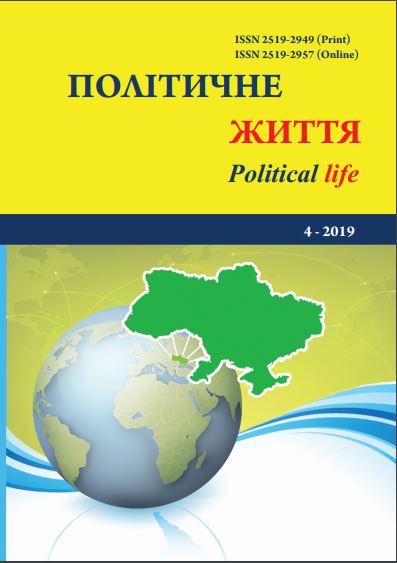Ukraine–European Union Association Agreement: political threats and economical opportunities.
DOI:
https://doi.org/10.31558/2519-2949.2019.4.16Keywords:
The Association Agreement, euro integration, European UnionAbstract
Ukraine–European Union Association Agreement defined a new, unique form of cooperation between parties. This very important document had shown the importance not only for Ukraine’s aspiration to become a part of the European Community, but also demonstrated readiness of the EU to accept Ukraine as a state that is a part Europe. The process of signing the Association Agreement was not easy and ended successfully only from the second attempt. Signature and ratification of the Association Agreement was delayed by a number of events: Ukraine’s rejection to sign the Agreement in Vilnius (2013), the Maidan revolution events, escalation of the situation in Crimea and Donbass, Presidential elections, and Nederland’s referendum. As of today, the Agreement is considered to be the biggest normative legal act in history of the EU and Ukraine.
Most experts are analyzing The Association Agreement from the economic point of view. Indeed, economic part is one of the major parts of this document. However, its realization on the ground is impossible without political cooperation. This article focuses on the political part of the Agreement. The purpose of this paper is to explore the story of the Association Agreements between the EU and other states. The article defines the unique features of the Ukraine–EU Association Agreement, analyses changes during implementation, threats and prospects for further Agreement implementation. We conclude that there are internal and external reasons for complications in Agreement implementation.
For Ukraine this Agreement is not only about standards, principals and values, but also about international standing and ability to prove strangeness in the geopolitical arena. Implementation of the Agreement is a huge step for the «European future». But, we need to understand that such changes should be carefully weighted. Ukraine must save sovereignty, independence and an ability to defend its interests.
References
Олійник Ю. Угода «Про асоціацію» ЄС з «третіми» державами: досвід Польщі. Українська національна ідея: реалії та перспективи розвитку. Львів, 2014. Випуск 26. С. 133-140.
Europe Agreement establishing an association between the European Communities and their Member States, of the one part, and the Republic of Hungary, of the other part URL: https://www.fdfa.be/sites/default/files/atoms/files/304_Agreement%20in%20English.pdf (дата звернення 29.09.2019).
Копенгагенські критерії членства в Європейському союзі (інформаційно-аналітична довідка) URL: https://mfa.gov.ua/ua/page/open/id/774 (дата звернення 28.09.2019).
Угода про асоціацію URL: https://www.kmu.gov.ua/ua/diyalnist/yevropejska-integraciya/ugoda-proasociacyu (дата звернення 25.09.2019).
Dutch referendum voters overwhelmingly reject closer EU links to Ukraine URL: https://www.theguardian.com/world/2016/apr/06/dutch-voters-reject-closer-eu-links-to-ukraine-in-referendum (дата звернення 03.10.2019).
ЄС знайшов вихід з кризи щодо Угоди про асоціацію з Україною. Повний текст рішення. Українська правда. URL: https://www.eurointegration.com.ua/articles/2016/12/15/7058954/ (дата звернення 29.09.2019).
Угода про асоціацію між Україною, з однієї сторони, та Європейським Союзом, Європейським співтовариством з атомної енергії і їхніми державами-членами, з іншої сторони URL: https://zakon.rada.gov.ua/laws/show/984_011 (дата звернення 25.09.2019).
Звіт про виконання Угоди про Асоціацію між Україною та Європейським Союзом у 2018 році URL: https://eu-ua.org/sites/default/files/inline/files/association-agreement-implementation-report-2018.pdf (дата звернення 4.10.2019).

